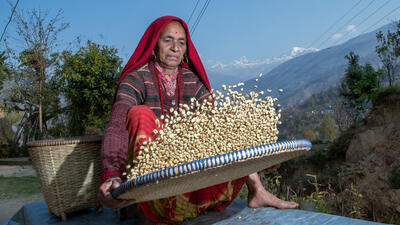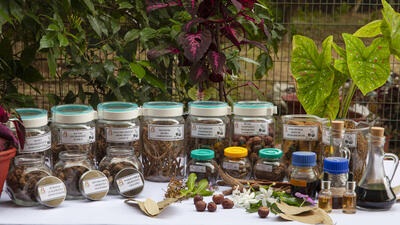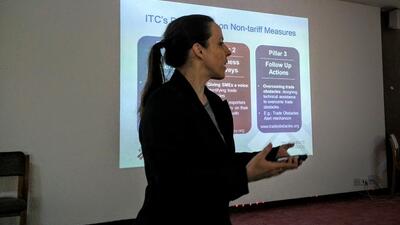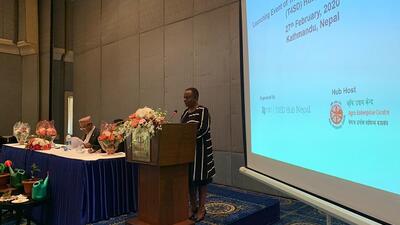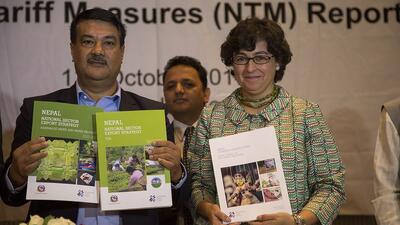The sky is the limit: Organic Himalayan specialty coffee set to create new jobs (en)
Nepal is known more for its mountains than its coffee but ITC’s acting Executive Director Dorothy Tembo got a taste of the specialty varieties grown there on a recent visit to a coffee processing farm in Chapagaun, a potential partner in a new four-year project on trade-related assistance in the country’s coffee sector.
Nepal is predominantly an agrarian economy with 72% of the workforce, of which 83% are women, working on the land, according to ILO and World Bank estimates in 2017. Meanwhile, more than four million young Nepalese work outside the country as temporary migrant workers.
The country is turning to the underserved Himalayan speciality coffee sector to help reduce rural poverty and create jobs for women and young people to address migration. The opportunity is immense: increasing coffee production could create an estimated 40,000 new jobs by connecting coffee smallholders and farmers to market.
Himalayan coffee’s special appeal lies in its exotic origin, located outside the traditional tropical zone of the coffee belt, and represents a high-altitude, organic, community-based production of Arabica. But these unique properties also present challenges of reaching distant markets.
The high cost of moving goods across the country and across borders due to weak infrastructure and insufficient trade support makes it difficult for Nepalese small businesses to participate in supply chains, integrate into global production networks and get a fair price.
This is where ITC sets out to make a difference.
On her visit, Ms. Tembo met the Nepal Coffee Producers Association, an umbrella organization for all Nepalese coffee organizations, businesses and cooperatives involved in the coffee industry.
They discussed how the organization unifies the small and marginalized group of farmers located in the hilly regions (800–1600 metres) to help them process and market organic and high-quality coffee. The collaboration will help expand the production base, include solutions to the effects of climate change and support the country’s sector export strategy.
Women’s empowerment
Ms. Tembo also met Coffee Ma Mahila, the Nepal Women in Coffee Group, focusing on women in the sector, including producers, farmers, processors and traders.
The association seeks to increase women’s participation, empowerment and recognition with training, finance and access to trade. In particular, it tries to empower women coffee farmers socially and economically by encouraging them to take a leadership position in the sector.
Coffee Ma Mahila also helps the women connect to the International Women’s Coffee Alliance platform to share their knowledge and experience. The association operates under the umbrella of the academy of coffee excellence in Nepal, which teaches the full curriculum of roaster, barista, brewer, sensory and green coffee modules.
The International Trade Centre’s efforts in Nepal’s coffee sector are part of the newly launched European Union-funded ‘EU-Nepal Trade-Related Assistance: Facilitating Increased Trade and Participation in Coffee and Pashmina Value Chains’, a contribution towards the country’s efforts to achieve greater sustainable economic growth and development, and its goal of exiting the ‘least developed country’ category in the near future.




